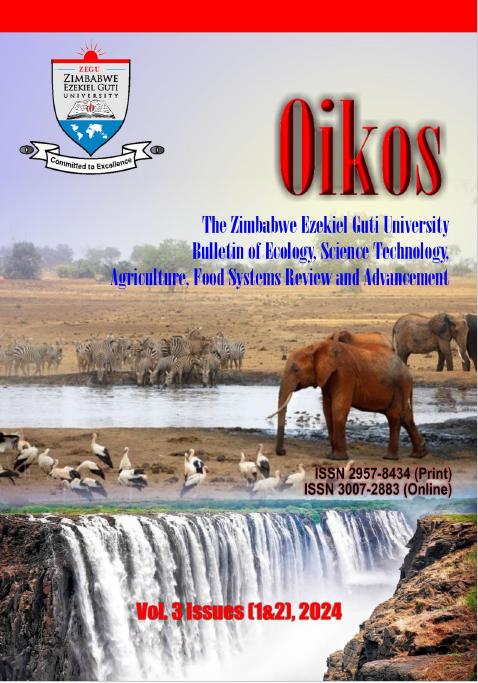Traditional Water Harvesting a Panacea to Climate Change A Case Study of Chiweshe Farmers in Mazowe District in Zimbabwe
DOI:
https://doi.org/10.71458/rqs6f609Keywords:
climate change, traditional water harvesting, traditional knowledgeAbstract
This study seeks to critically investigate the benefits communities derive from using traditional water harvesting practices. The Chiweshe community in Mazowe District in Zimbabwe is facing survival complications and dilemmas emanating from the changing climate. The climate change-induced challenges vary from persisting droughts, low rainfall patterns and water insecurity, cumulatively leading to food insecurity. Notwithstanding these challenges, the Chiweshe community has profited much through traditional water harvesting. To explore these benefits, this research used a mixed method approach. Data were collected through interviews, observations and questionnaires. A sample of 28 participants was selected in Chiweshe community using a combination of purposive and convenience sampling methods. The research discovered that from the use of sand dams, water harvesting pits, stone bunds and check dams, the community got income, improved harvests, availability of water, biodiversity, improved livelihoods among others. It was recommended that the Chiweshe community should enhance moretraditional water harvesting strategies like the johad, khettara, stone tanks and zai pits used in other communities as to have comprehensive benefits.




